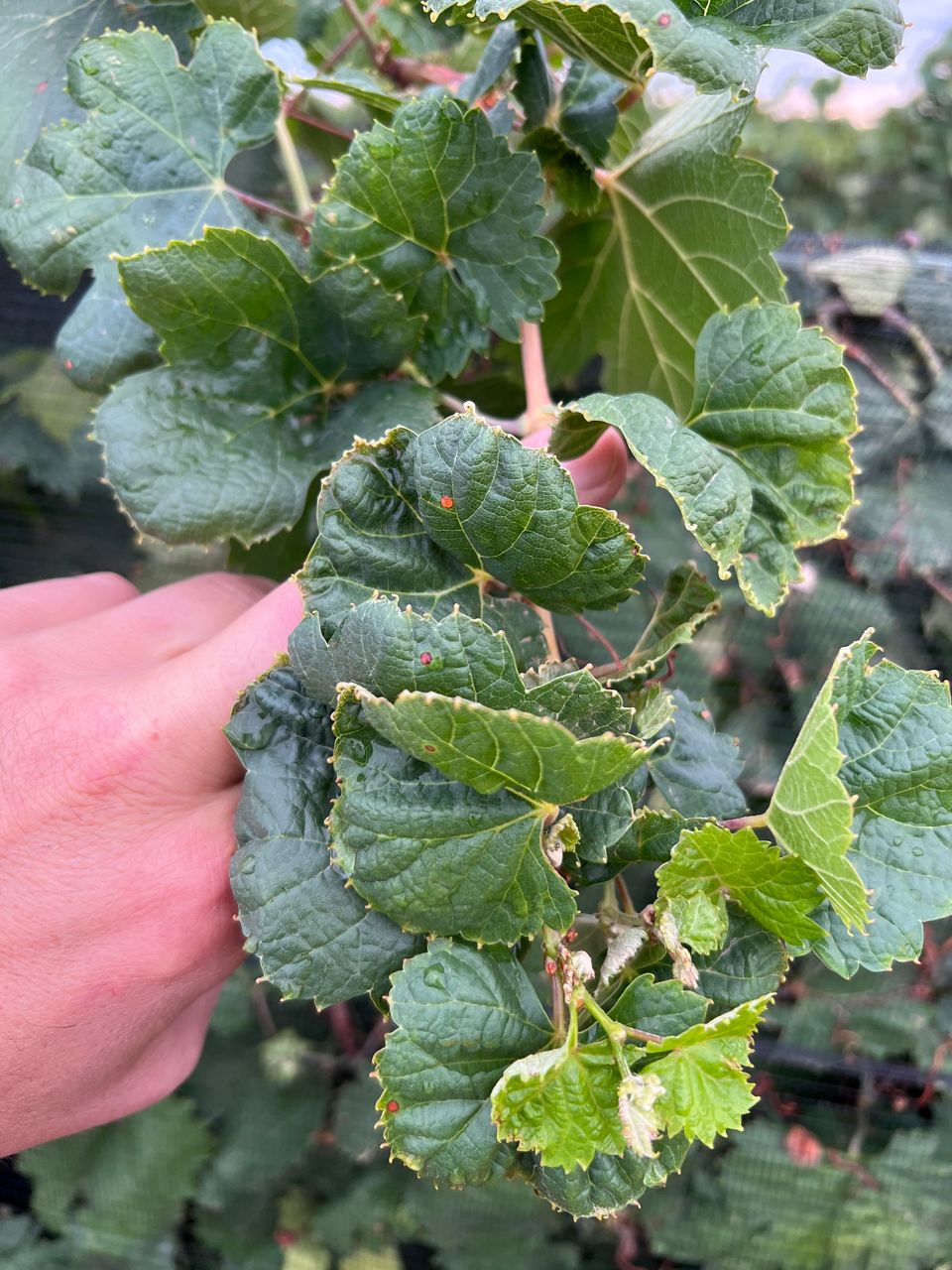HYE, Texas — Texas is the largest producer of cotton in the country, but a chemical used to keep the state number one is hurting grape growers who want to sell made-in-Texas wine. Dicamba is a weed-killer that cotton farmers use in the High Plains region near the panhandle.
Cotton and grape growers are neighbors in the High Plains. When cotton growers use Dicamba, it vaporizes and moves over neighboring properties like vineyards. Farmers call this "drift."
Chris Brundrett, the co-founder and CEO of William Chris Vineyards in Hye, Texas, said grape vines are some of the most fragile plants in the world. In Hye, the grapes are healthy. But a few hours north in the High Plains, the grape vines are deformed and damaged. Brundrett uses grapes that are grown on-property in Hye, but he also uses some from the High Plains.

“I think that it is our God-given right to be able to farm a vineyard without the risk of drift happening over and over and over again,” he said. “Ultimately, if we’re not able to continue the growth and be able to plant more vines, it’s going to be a lot harder to keep growing our industry, and that’s a problem.”
There's a lawsuit against Bayer-Monsanto and BASF, the makers of dicamba, because of the damage.
In a statement to Spectrum News, Bayer wrote: “We have great sympathy for any grower who suffers a crop loss, but there are many possible reasons why crop losses might occur that a number of these plaintiffs have acknowledged, including extreme winter weather conditions and other herbicides used off label that can have harmful effects on perennial crops like vineyards. The company believes that when all the facts of the case are considered, the Court will find its products were not responsible for the damages claimed by the plaintiffs."
Brundrett wants to compete with other great winemakers, but he has to have good grapes to do that.
“I’m so worried that we actually bought another vineyard in the Hill Country about three years ago and are looking at planting more grapes in the Hill Country away from dicamba,” Brundrett said.
A wine can carry the Texas name if 75% of the grapes used were grown here. Wines that use a more specific label with the name of a region or vineyard have to be 100% Texas grown. Winemakers like the rules and are proud to make wine using Texas-grown grapes. But if there aren’t good grapes here, there’s a problem.
“If it is becoming more and more difficult to just grow Texas grapes and have a significant enough yield where everyone that wants Texas grapes can get Texas grapes, then that makes it very difficult to utilize that particular piece of legislation,” said Kyle Frazier, the legislative director with the Texas Wine and Grape Growers Association.
He said a recent hearing with Texas House members was the first step to bring cotton and grape growers together to find a solution. He said even though the cotton farmers are using the product correctly, they can’t control it once it vaporizes and moves over into other fields.
“Certainly no one out there is intending for this to happen,” Frazier said. “In giving the benefit of doubt to our friends at the cotton industry, they're trying to use this product in a correct fashion, and it's just very difficult for them to do that. And I think those are the things that probably came out in the hearing…But the cotton industry is a huge business in Texas, and we realized that the cotton industry is not going away, but the grape industry is not going to go away either. And so we have to find that balance where both of us can survive and be successful moving forward.”
Frazier said he’s looking into how the EPA and the Texas Department of Agriculture could regulate the chemical, or how the Texas legislature could adjust a statute in the agriculture code to account for lower grape yields due to dicamba. But the conversation is just beginning, and there’s more research to do.
“We've got to figure out a way for us and folks to live together and both be successful,” Frazier said. “I see any efforts during the upcoming legislative session to trying to come up with ways to limit that damage.”
Brundrett said the legislature has an opportunity to protect the rights of both groups when the next session begins.
“We’re really interested in the solution and coming to the solution together,” Brundrett said.











